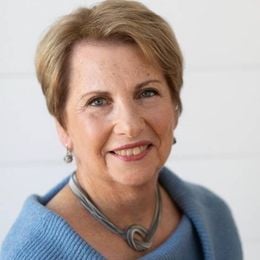Have You Had the 'Money Talk'?
If one partner handles family finances, both should regularly discuss the assets they have, where they are and how to access them
For many of us, early in our domestic relationships, one partner stepped up to take the lead on handling the family finances. There is comfort, almost relief, in not thinking about it and knowing that a trusted loved one will "take care of it."

At least it's a relief until, as described by a recent widow, the money-managing partner dies and the survivor finds that everything is on autopay and linked to credit cards with the late partner as the primary account holder. "Now he has died, and I'm locked out of all accounts," she says.
Another woman says the problem can cut both ways: "If I die," she says, "he won't know the first thing about our finances."
"Maintaining a current understanding of your financial details, even if your partner has taken the lead, will empower you to remain more confident in the event of a situation that forces you to take over this role."
UBS Global Wealth Management says this is not unusual, especially for older women. While women tend to live longer than men, their male partner often handles their finances.
Suze Orman, a popular financial advisor with a podcast called "Women & Money," puts it bluntly: "I don't care if your spouse is the best/smartest financial whiz. Every woman, single or attached, owes it to herself to be financially smart."
At the worst of times, when consumed with grief, spouses are faced with the realization that they are now responsible for all things financial. Sadly, they find themselves in a tangled mess that could have been avoided if they had talked about money early and often.
Not knowing essential information about their money and finances may open them to significant risk. It's no surprise that so many older adults find themselves in danger of financial losses, expensive legal complications or confusing tax situations, not to mention fraudsters that invade digital accounts and assets.
Sharon Olson, President of Olson Wealth Group in Bloomington, Minnesota, a recognized leader in women's wealth, suggests partners conduct at least two meetings a year to have the "talk" about family financial information. One or more might include a professional money manager to keep things focused.
"The best times for these family meetings," according to Olson, "are mid-April, right after preparing details for tax purposes, and mid-October, allowing for a review before the end of the year. This is an important time to review balances on all accounts, update passwords, credit card numbers, location of important documents, and names of all advisors.
"Maintaining a current understanding of your financial details, even if your partner has taken the lead, will empower you to remain more confident in the event of a situation that forces you to take over this role," she added.
Do You Need a Talk? Yes.
When I raise the issue of the "talk" with my friends, they perk up with great interest. You can almost see them trying to recall whether they need a "talk," not just with their partner but also with their estate planning attorney and banker.
"Meeting with an estate planning attorney about your accounts and your intentions, as well as a banker will help you understand how your accounts are titled currently and can help you properly set them up given your estate planning documents," says Kate Kelly, regional president of PNC Financial Group. "Bankers can further help by being named executor and successor trustee to administer the assets during incapacity and settle the estate after death."
"Couples young and old can be left in the lurch if they don't know what accounts exist, where they are and how to access them."
"Estate planning is a necessary part of a couple's financial picture," explains Julian Zebot, partner and chair of the trust and estate litigation practice group at the Maslon law firm in Minneapolis. "But getting documents prepared and updated is not enough. Couples young and old can be left in the lurch if they don't know what accounts exist, where they are and how to access them."
Imagine one of my friend's awakenings after a "talk" with her husband and their banker. She learned that her successful business of 40 years used her husband's business checking account, which was in his name only. Luckily, it wasn't too late, although it took two hours with a banker to sort things out.
Olson takes the "talk" even further. "Act like your bank," she says. "Make sure you understand the balances and values of all your investments and assets, the names and contact details for outside advisors, bank account details and passwords, credit card numbers, phone numbers, passwords, wills, trusts and the beneficiaries — all good starts to untangling your estate."
Kelly suggests reviewing a consolidated physical binder, or as I call it, my Red Folder. "It should contain estate planning documents, a list of assets, account statements, and a 'here's where we hid stuff' list in a location known by you and your significant other or other family members," she said.
"Transparency goes a long way if done sooner rather than later."
"These don't need to be hard conversations," continues Zebot. "Transparency goes a long way if done sooner rather than later because the later date may never happen."
Sorting out finances that you know little about can cause a lot of emotional stress. "How many times a day do I have to say, 'my husband just died' as I explain that I need assistance from a credit card holder or banker?" my widowed friend asks. The stress is compounded when bank workers, after telling her she needs to present more documents, sign off calls by saying, "Have a nice day."
Taking the preemptive step to conduct the "talk" about money and making it a regular occurrence with your partner demonstrates caring and concern for the near-term, long-term and unexpected aspects of life.


